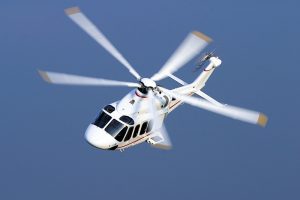The Dutch Caribbean Coastguard (DCCG) is taking steps to become a more efficient and task-oriented outfit. DCCG approached NLR to advise on operational requirements and the specifications that its airborne equipment should meet.
NLR can draw on extensive expertise when it comes to projects of this kind: drawing up a set of needs and drafting a set of requirements for the procurement of airborne equipment. In 2011, NLR presented its recommendations to DCCG, a unique partnership within the Kingdom of the Netherlands. DCCG is a civilian organisation responsible for maritime law enforcement and ser-vices in all the Caribbean islands of the Kingdom: Aruba, St Maarten, Curacao, Bonaire, Saba and St Eustatius. In October 2011, the project resulted in the signing of a contract with a helicopter services provider. This was not a contract of purchase, but an agreement for the provision of up to 1,000 flying hours a year, and guaranteed permanent availability of helicopters.
Helicopters on air patrol must be capable of assuming all regular coastguard responsibilities. In addition to customary coastguard tasks, such as fisheries inspection and search-and-rescue missions, they must be able to detect and detain drug smugglers, a common problem in the region. For this reason, the helicopters are equipped with a STOP sign and blue warning lights. Because most flights are operated over sea, standard equipment also includes life rafts and emergency floatation gear.
NLR analysts screened three tenders submitted by three service providers offering to undertake the above duties with two helicopters. In order to compare the tenders, the analysts worked out potential fuel consumption and the action radius for various types of mission. They presented their conclusions at the end of 2011. DCCG subsequently asked the Defence Materiel Organisation to sign a contract with FB Heliser-vices for the deployment of two AgustaWestland AW139 transport helicopters.

